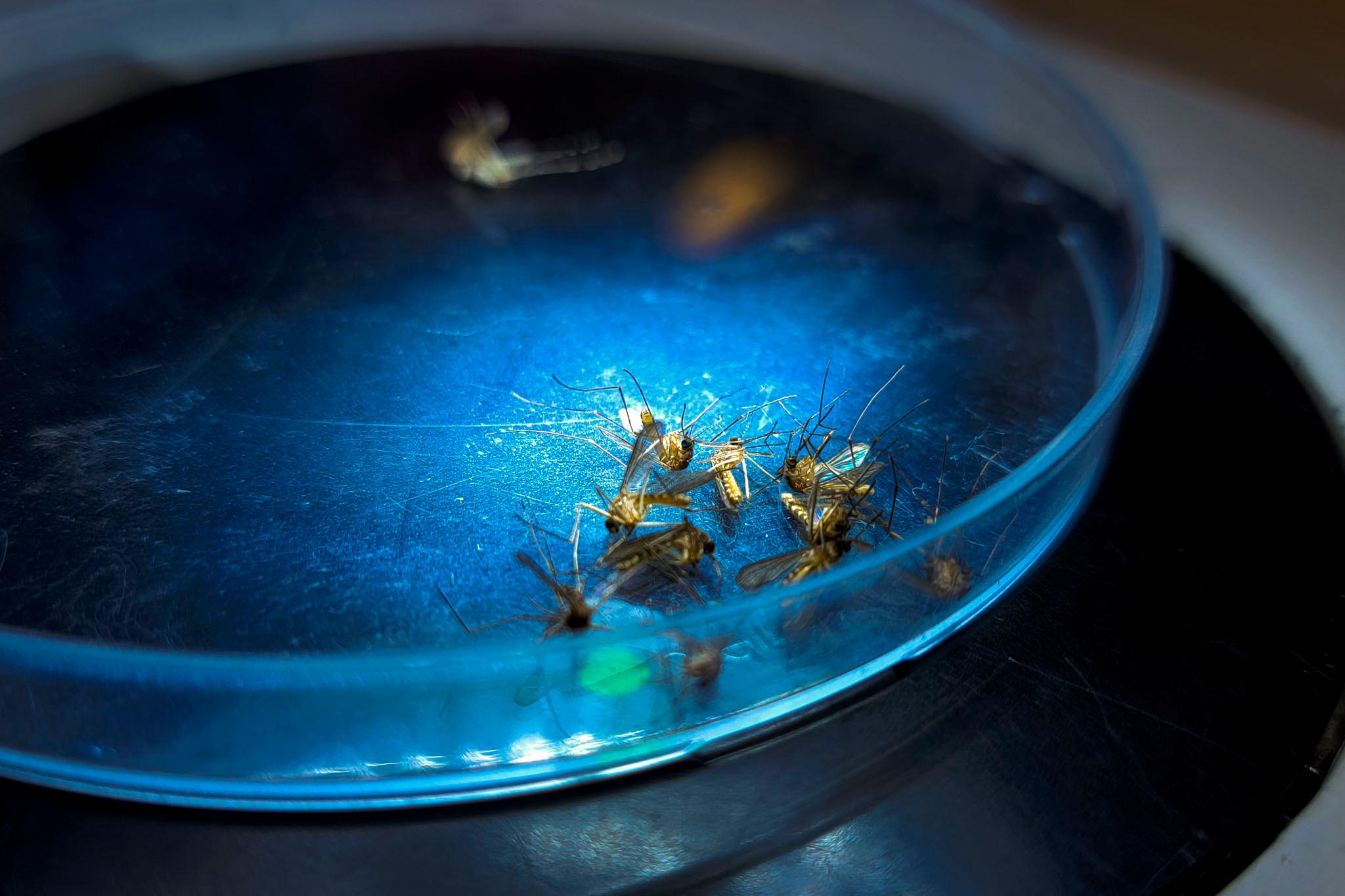Updated at 5:04 p.m. on Monday, Aug. 4, 2025
The city of Denver’s health department said on Monday it has confirmed a human case of West Nile Virus, its first of the year.
Jefferson County also confirmed its first human cases, in three residents who are now recovering at home, according to a press release.
“Thankfully, most people who get the virus don’t have symptoms, but some people can get really sick or even die from West Nile Virus,” said James Rada, Jefferson County Environmental Health Director. “With the recent death of a resident in a neighboring county and now human cases in Jefferson County, it’s even more important that Jeffco residents do what we can to avoid being bitten by mosquitoes.”
It comes as more cases are being reported around the state, which is typical for this time of year.
The city released no information on the patient or their condition.
The virus is mostly spread through the bite of an infected mosquito. It can be transmitted anytime mosquitoes are active. In Colorado, that's generally as early as May.
Typically, the state sees higher numbers in summer and fall, with the season ending with the year's first hard freeze, according to the Denver Department of Public Health and Environment (DDPHE).
What are the symptoms of West Nile?
Symptoms of the disease caused by the virus include fever, fatigue, headaches, and body aches, the agency said in a press release. Some people also experience rashes or swollen lymph nodes. Symptoms typically appear three days to two weeks after being bitten. Anyone can be infected. People older than 50 or with weakened immune systems are at higher risk for severe illness.
Anyone experiencing symptoms should consult their health care provider immediately, as treatment can help ease symptoms and aid recovery.
How to prevent West Nile
The best way to prevent it is to avoid being bitten by mosquitoes. One key is draining standing water where bugs can breed.
DDPHE provided these preventive recommendations:
- Avoid watering cement or streets, which can create mosquito-friendly puddles.
- Use insect repellents, like DEET, which are safe and effective when used as directed, even for pregnant or breastfeeding individuals.
- Limit outdoor activity at dawn and dusk when mosquitoes are most active.
- Wear long sleeves and pants when outside.
- Ensure windows and doors have intact screens to keep mosquitoes out.
In prior years, Colorado has reported dozens of deaths and hundreds of hospitalizations.
Colorado has recorded one death, an adult from Lafayette, from the virus in 2025, with three people hospitalized. Five infected people have developed neurological symptoms; 11 Coloradans total have been infected, according to the state health department’s website.
A spokesperson for DDPHE said Denver recorded 6 cases in 2024 and 98 in 2023, according to historic data from the state health department.
This year so far isn’t nearly as bad as others seen in the state this century.
The worst recent year in Colorado was 2023, when Colorado led the nation in West Nile Virus deaths. That year 51 Coloradans died from the virus and nearly 400 were hospitalized. The state recorded more than 600 cases.
In 2003, nearly 3,000 Colorado cases were reported with about 150 hospitalizations and 66 deaths.
Last year, 164 people died from the virus in the U.S., according to the Centers for Disease Control and Prevention. There were 1,791 cases. For comparison, in 1999, the nation recorded 62 human cases and 7 deaths, showing how much more widespread reports of the virus have become in the last quarter century.
There is no specific treatment for West Nile Virus, according to the CDC.













